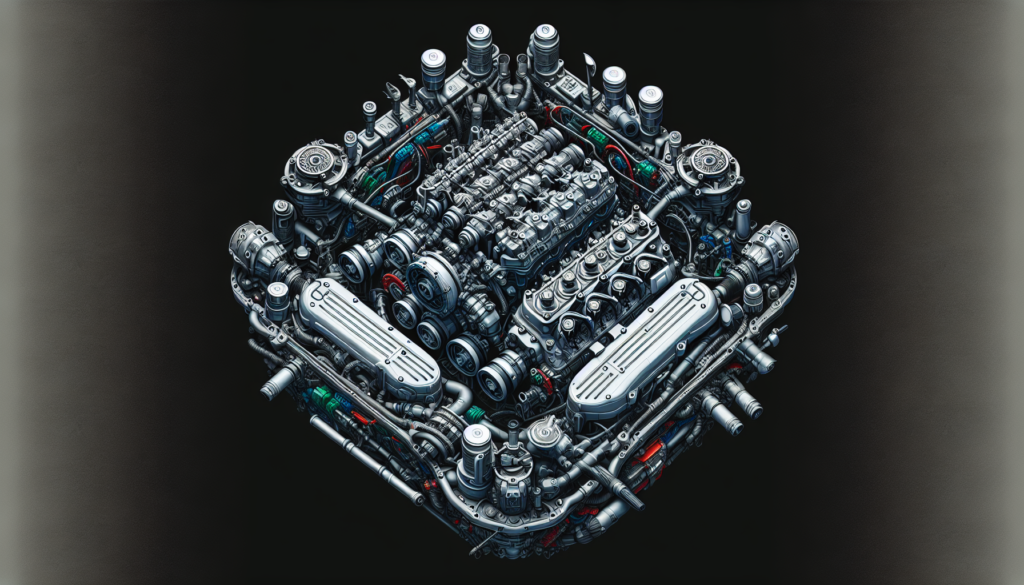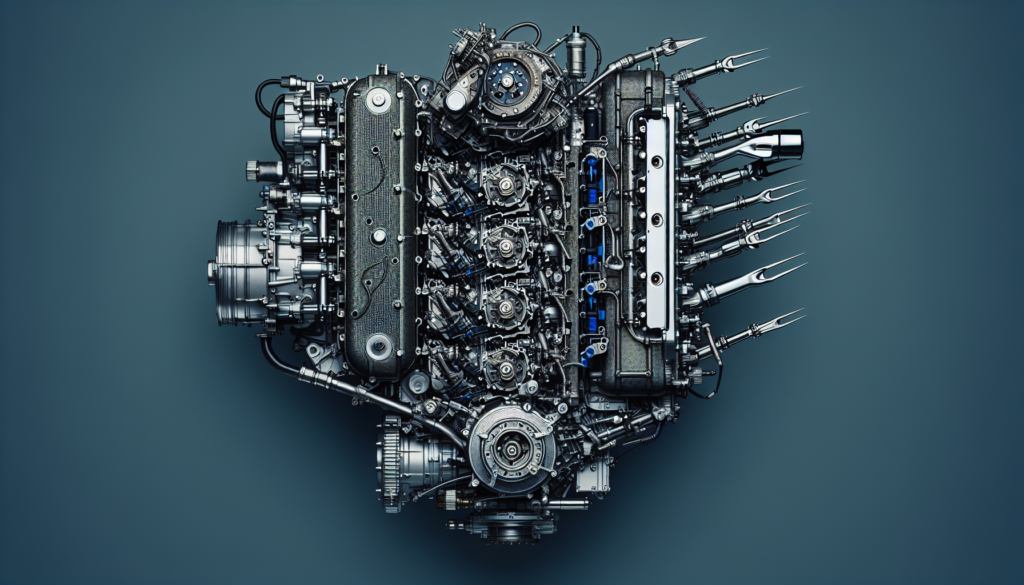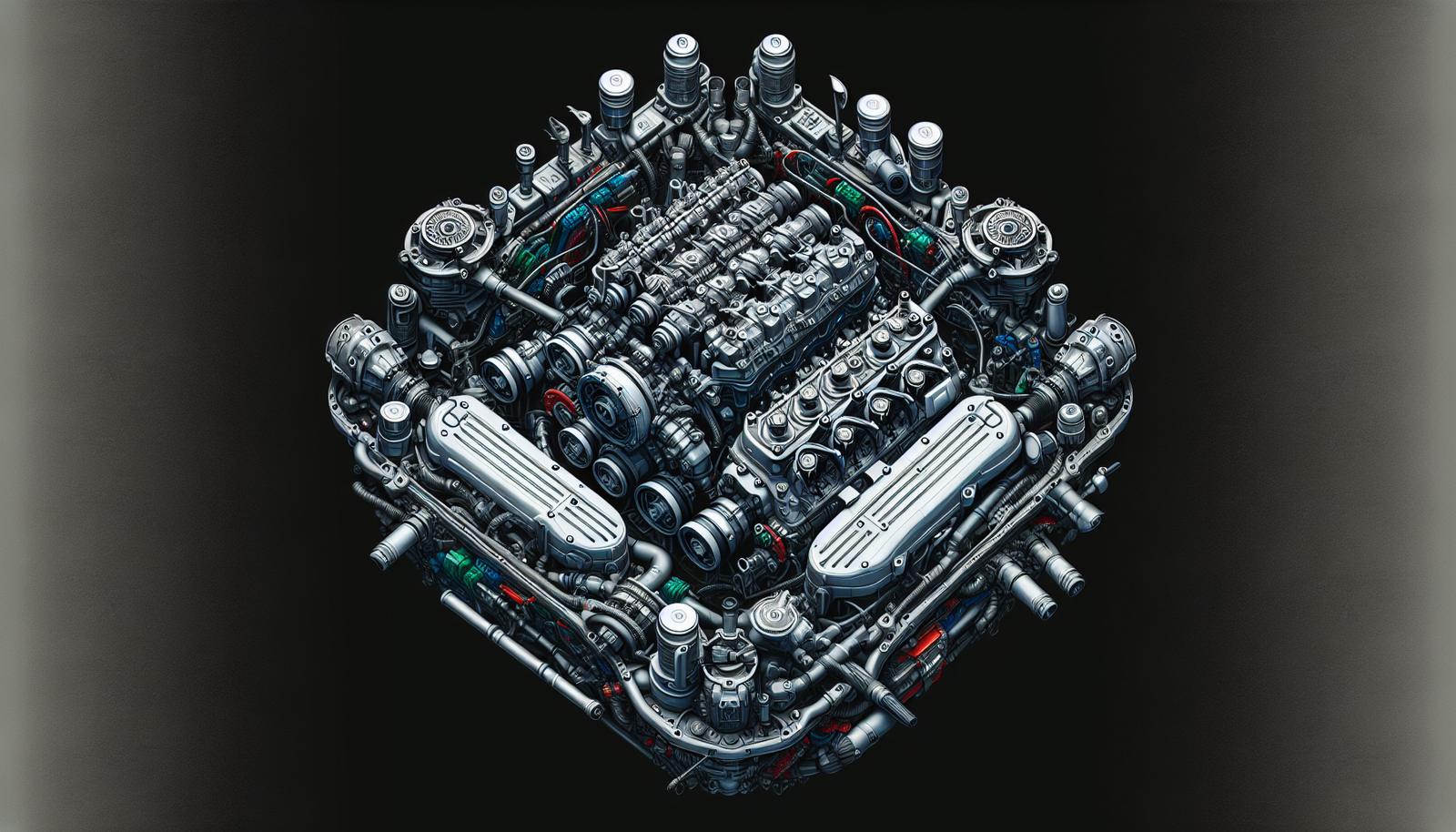Ensuring the utmost performance of your fishing boat engine doesn’t have to be a constant challenge. This comprehensive guide titled “Best Ways To Maximize The Efficiency Of Your Fishing Boat Engine” offers you a host of techniques that will enable you to get the most out of your engine. From ordinary maintenance to advanced adjustments, it’s a deep pool of knowledge that provides practical advice to maneuver your aquatic adventures adeptly. By the end of this article, you’ll be well-equipped to boost your engine’s power while minimizing fuel consumption.
Understanding The Basics Of Boat Engines
Hello there, stepping into the world of boats is incredibly exciting! Yet, just like learning to navigate through open waters, understanding boat engines isn’t always easy. But don’t worry! Let’s break down the basics for you.
Parts of a boat engine
First off, let’s get to know the crucial parts of a boat engine. Think of your boat engine as the heart of your vessel. It’s made up of different components, including the block, which is the engine’s core. Then there is the crankshaft that converts linear motion into rotational motion. The pistons move inside the cylinders, creating power for the boat. Other essential parts include the camshaft controlling the valves, and the flywheel storing rotational energy.
How a boat engine works
You may be wondering, how does all of this run? Well, it all revolves around the internal combustion process. As the pistons move within the cylinders, they compress air and fuel. The spark plugs then ignite this mixture, causing an explosion, which drives the pistons out. This action in turn moves your crankshaft, transmitting power to propel the boat forward. This cycle keeps repeating, driving you smoothly over the waters.
Different types of boat engines
Knowing the way boat engines work lets you choose the right kind for your needs. You often have to choose between outboard, inboard, sterndrive, and jet engines. Outboard engines are common for smaller boats and are attached to the stern, offering easy control while steering. Inboard engines, found within the boat, are usually for larger vessels. Sterndrives, often called inboard/outboard engines, provide a mix of both worlds. Lastly, jet engines draw in water, expelling it to push the boat forward.
Maintenance Of The Fishing Boat Engine
Stepping up to boat ownership involves taking good care of your engine.
Importance of regular engine maintenance
Maintaining your boat engine is paramount for several reasons. Regularly serviced engines perform at their top efficiency, save fuel, and prevent unexpected breakdowns. This proactive care extends the lifespan of your engine and provides peace of mind each time you set out for a fishing trip.
Basic boat engine maintenance procedures
You don’t need to be an expert to perform essential boat engine maintenance. Some tasks include regularly checking the engine oil, keeping the engine clean, and checking for signs of corrosion. Remember to replace spark plugs and fuel filters as and when needed as well. Basically, treat your boat engine the way you would your car engine.
Professional boat engine maintenance
While taking care of basic maintenance is great, some things are best left to the professionals. They can handle complex tasks like oil changes, valve adjustments, checking the transmission, and inspecting the propeller. Hiring a professional at least once a year helps ensure your boat engine stays in top shape.

Fuel Efficiency Tips
Fuel efficiency is just as crucial in boating as it is in driving.
Choosing the right fuel for your engine
Using the right type of fuel is crucial. Check your boat engine manual to find out what fuel is recommended for optimum performance.
Proper fueling techniques
Less is sometimes more when it comes to fueling. Avoid overfilling your fuel tanks and always allow room for the fuel to expand. Fuel slowly to reduce the chance of spills and remember to use a fuel absorption pad to catch any accidental drops.
Maximizing fuel efficiency through boat engine settings
A properly tuned engine can do wonders for saving fuel. Also, ease up on the throttle to avoid fuel wastage. Hull maintenance, reducing weight, and using the right propeller size can further contribute to fuel efficiency.
Engine Tuning And Its Benefits
Engine tuning is like giving your boat a power boost.
What is engine tuning
Engine tuning involves adjusting the engine settings to provide optimal performance. This might involve adjusting the fuel injection timing, ignition timing, and other factors.
Steps in tuning a boat engine
Engine tuning takes a few key steps. Start by testing your boat’s current performance. Then, it’s time to make adjustments – change the spark plugs, replace the air filters, and adjust the timing.
Benefits of engine tuning
Why should you bother with engine tuning? Well, it can increase your engine’s power output, maximize fuel efficiency, and extend engine longevity.

Proper Boat Engine Storage
When it’s time to store away your boat, don’t forget about the engine.
Preventing engine corrosion
Corrosion can be a boat engine’s worst enemy. Guard against it by using anti-corrosion sprays on the engine and flushing the engine with fresh water after every use.
Engine storage practices
Before storing your boat, give the engine a full service – change the oil, replace the filters, and add a fuel stabilizer. This preserves your engine during the off-season.
Effects of proper and improper engine storage
Proper engine storage can increase your engine’s lifespan and ensure it’s ready for the next boating season. Neglecting storage practices can lead to corrosion, engine damage, and expensive repair bills.
Dealing With Common Boat Engine Problems
Boat engines, just like any machinery, can encounter problems over time.
Identifying common boat engine problems
Pay close attention to any changes in how your boat is performing. Common red flags include engine hesitation, loss of power, or excessive fuel consumption.
How to fix common boat engine problems
Addressing engine problems often starts with some basic troubleshooting. Consult your engine manual, see if you can spot issues like a fuel leak, clogged filters, or aged spark plugs.
When to call in a professional
There are times when you’ll need a professional. If you’ve tried troubleshooting and the problem persists, or if you encounter a major engine breakdown, it’s time to call in the pros.
Upgrading The Boat Engine
Just like renovating a house, upgrading your boat engine has its own rewards.
Benefits of upgrading the boat engine
An upgraded engine can give you better fuel efficiency, more power, and even enhance your boat’s value.
When to upgrade your boat engine
Knowing when to upgrade comes down to your needs. If you find your engine is frequently needing repairs or not delivering the performance you want, it might be time for an upgrade.
What to consider when upgrading the boat engine
Keep in mind your boat’s specifications, the kind of boating you do, and your budget when considering an upgrade.
Adopting Environmentally Friendly Practices
In our world today, going green is not only recommended, it’s becoming necessary.
Importance of environmentally friendly boating practices
Adopting eco-friendly practices doesn’t just help the planet, it can also bring about cost and efficiency benefits for you.
Eco-friendly fuel options
When available and suitable for your engine, go for biofuels or fuels blended with ethanol to reduce carbon emissions.
Reducing engine emissions
Regular engine maintenance, proper refueling, and using the right oil can reduce harmful emissions from your boat engine.
Safety Practices In Handling Boat Engines
Just like the open seas, engines demand respect and careful handling.
Basic safety procedures when handling the engine
Always secure the engine before working on it, avoid open flames when refuelling, and regularly check for fuel leaks to prevent mishaps.
What to do in case of an engine emergency
In case of an emergency, shut down the engine immediately and disconnect the power source. If the issue involves fire, use a fire extinguisher designed for marine use.
Safety equipment for handling boat engines
Keep safety gear around, like gloves, eye protection, and proper tools to safely handle the engine maintenance jobs.
Training And Education On Boat Engine Efficiency
Knowledge is power, and this is certainly the case when it comes to maintaining your boat engine.
Learning about boat engine efficiency
Educating oneself on how boat engines work can unlock potential savings and maximize your boat engine’s lifespan.
Training programs for boat engine maintenance
Consider taking part in a training program on boat maintenance. It’s a valuable investment that can save you money and trouble in the long run.
Resources for learning more about boat engines
Utilize different resources, from books and online tutorials to boating forums, to continue learning more about your boat engine.
And there you have it! By understanding the basics of boat engines and how to take care of them, you are one step closer to a stress-free, efficient, and safe boating experience.

